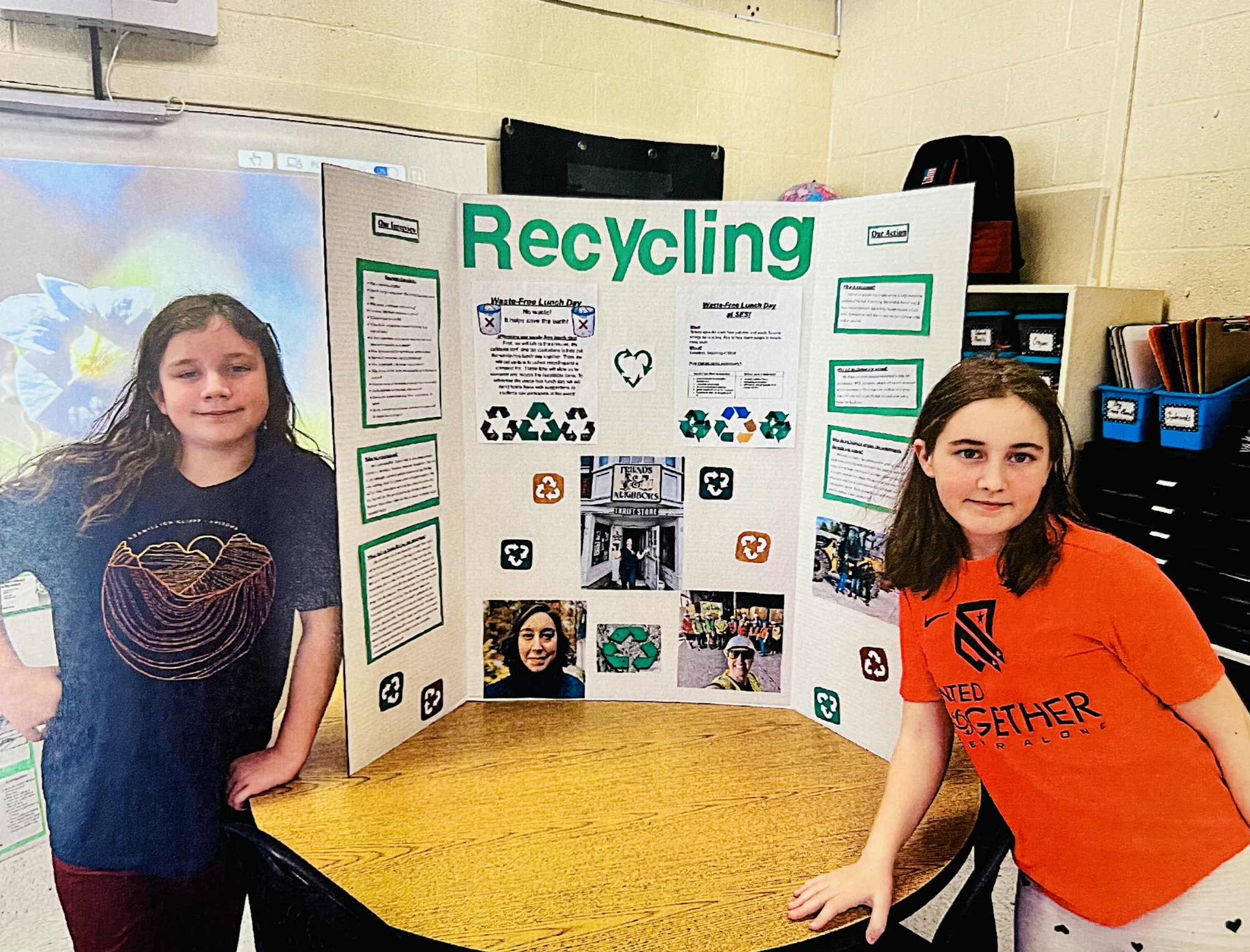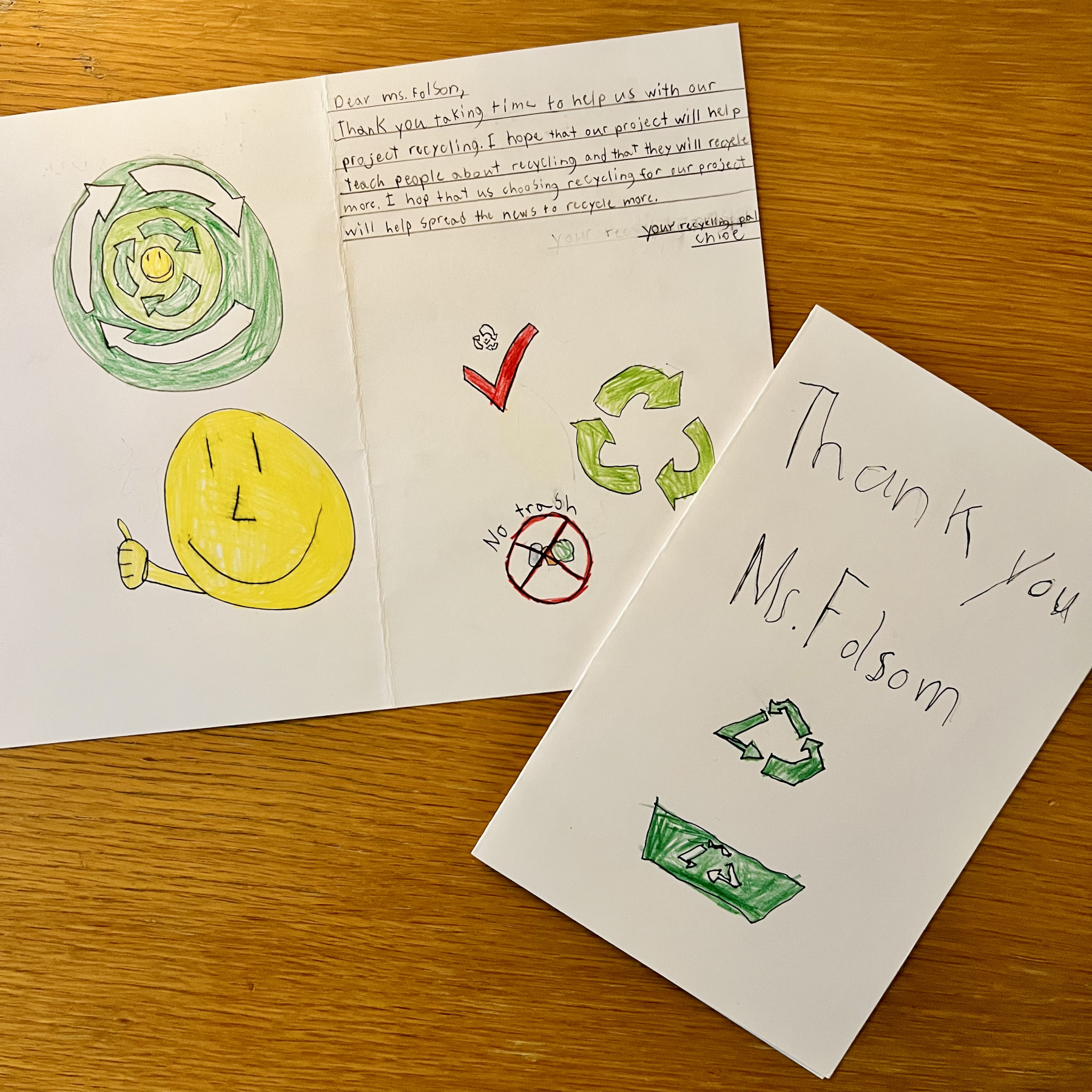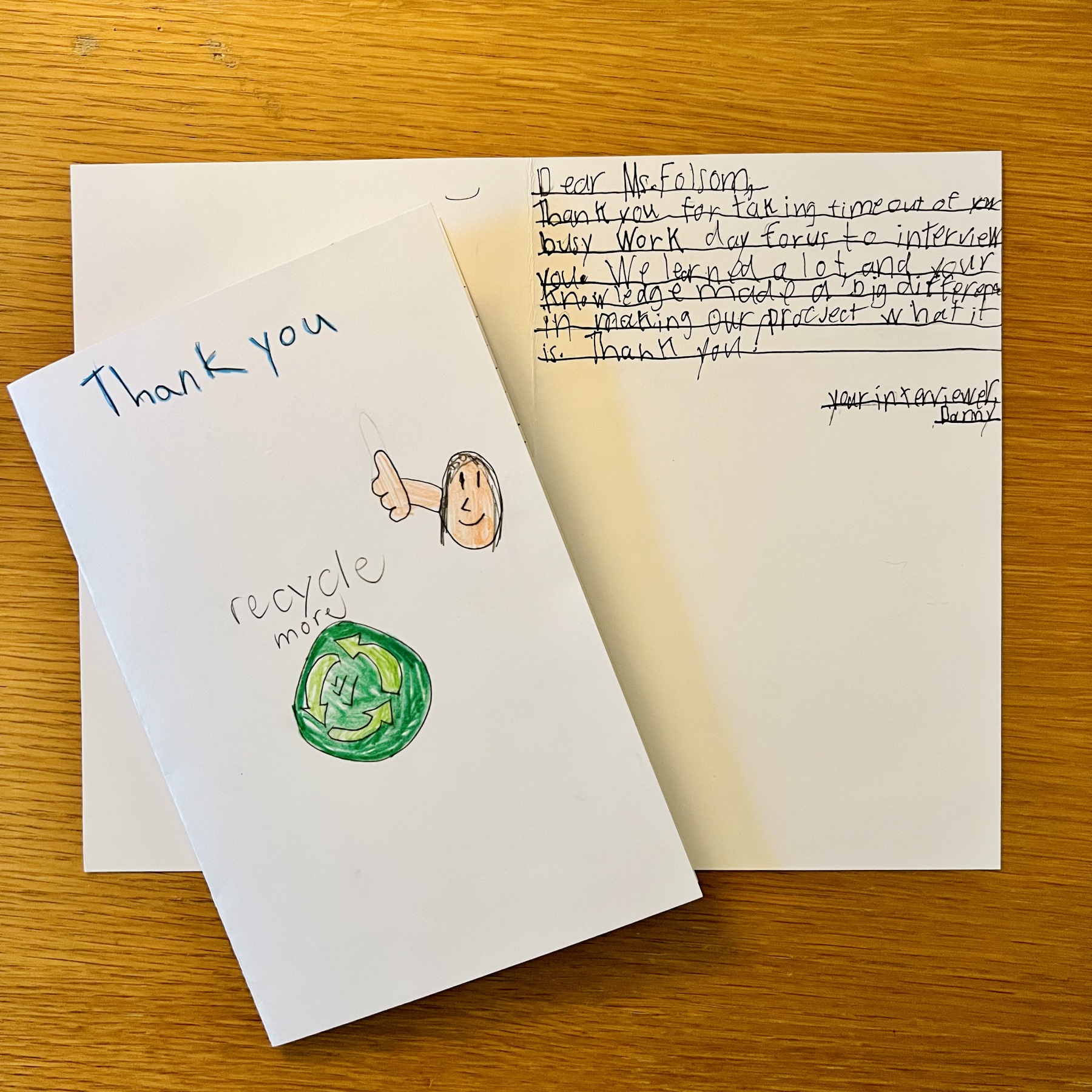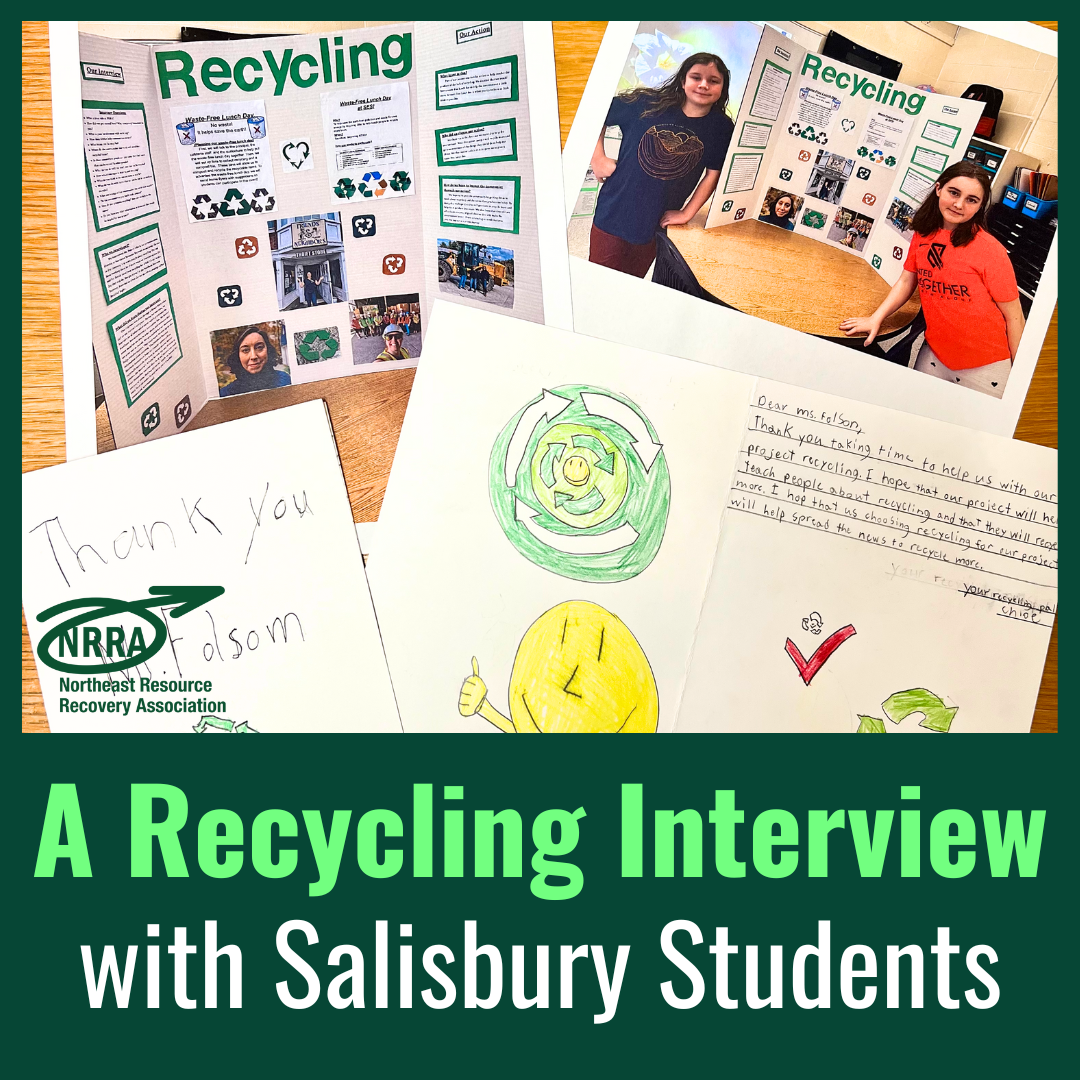A Recycling Interview with Salisbury Elementary Students
In March 2024, NRRA's Communications Manager, Andrea Folsom, was contacted by fifth grade Salisbury Elementary students who were putting together an Exhibition Project on recycling and were interested in an interview. Andrea had a wonderful time chatting with the students who asked great questions about recycling! After completing the interview, the students used the information they learned to choose an action - a waste-free lunch day where students would reuse and recycle waste with the goal of creating as little trash as possible. The students then presented their interview findings and action in an exhibition presentation.
The interview and photos from their project are below.
1. What is your role at NRRA? I am NRRA's Communications Manager, which means I help our organization tell our story and educate people on why recycling is important and how they can recycle more and recycle better.
2. How did you get started here? Why is recycling important to you? I joined NRRA 3 years ago to run a campaign about how to Recycle Right and I liked it so much I stayed! I’ve always recycled; even when I was a kid it was something my family did.
Recycling is important to me because the things we use and the earth we live on isn’t infinite – it’s our job as good stewards of the world to help take care of it and take care of one another – recycling helps us do that!
 Danny and Chloe did a great job with the interview and their Exhibition presentation!
Danny and Chloe did a great job with the interview and their Exhibition presentation!
3. How does NRRA help communities recycle? We help communities take the recyclables they collect at their transfer station and sell them to a company that will turn the recyclables back into a raw material, so they can be turned into a new item. We also help teach transfer station operators, town administrators, and residents about recycling in New Hampshire and within their community.
4. What items can be recycled? Lots of things! Aluminum, paper, cardboard, steel or tin, scrap metal, plastics, batteries, electronics, the list goes on! The best way to find out what can be recycled in your town is to ask your transfer station attendant.
5. Where do the communities you work with send their recycled items? Some things get processed in NH like some electronics and cardboard. Some things get sent to other places in the United States, like aluminum, which must be melted down. Some things go to Canada, like some glass, which is turned into fiberglass insulation! And some things are sent overseas, like some scrap metal, which also must be melted down in a big smelter.
6. Is there somewhere people can put items they don't want that can be reused by other people? Yes! There are thrift stores or consignment stores, there are pages on social media where people just give away free things, some transfer stations have a swap shop or table where you can leave things. Sometimes I put things I no longer need at the end of my driveway with a “free” sign and inevitably someone picks it up!
 7. What do you do with the trash that cannot be recycled? There will always be some things that cannot be recycled, so this goes into landfills or incinerators.
7. What do you do with the trash that cannot be recycled? There will always be some things that cannot be recycled, so this goes into landfills or incinerators.
8. How would you explain reusing and reducing? Reusing is using an item again for either the same purpose – like refilling a water bottle – or for a new purpose, like planting seedlings in a water bottle bottom. Reducing is buying less of things – so making sure as an adult I’m buying clothes that I can wear many times for many years, instead of buying new clothes each season. It can also be choosing to buy things that don’t have much packaging.
9. What do you think is the easiest item to recycle? Aluminum cans since they can be recycled over and over forever!
10. What percentage of the communities you work with recycle? We work with 90% of the towns and cities in New Hampshire and they all recycle something!
11. Do the communities you work with compost? Yes, some do! This is a growing interest for many people. In April I get to lead a 2-day workshop series on composting and other ways to keep food waste out of the landfill.
12. How do you promote recycling? How can we help do the same? We have LOTS of resources! We have a Recycling 101 presentation I created and recorded that towns or schools can present. We have handouts and a Recycle Right section on our website where we bust recycling myths and tell people how they can recycle tricky or dangerous things like batteries or plastic bags. I also get to give presentations on recycling at conferences and to towns.
13. Do you have any other information or resources that would be helpful for our project? Yes! We have a whole school section on our website, including a STAR assessment sheet where you can see what areas in your own school could be improved! Check out our School Resources page.
Here are a few more resources I think you will find helpful!
 - Here’s what happens when you recycle cardboard! (short video)
- Here’s what happens when you recycle cardboard! (short video)
- There are two main types of recycling in New Hampshire – single stream (where everything goes into the same container) and source separated, where you separate your own recycling. Here’s a short video about it!
- Here is one of my favorite pages! It’s lots of videos showing you what happens to things when they are recycled!!
